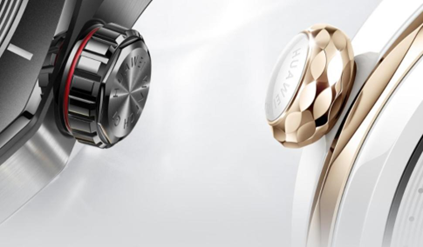When preparing for water
adventures, ensuring your smartwatch is truly waterproof is essential. Not all
smartwatches are designed to handle water exposure, so understanding the
specifics of water resistance ratings, features, and how to care for your device
is crucial. Whether you’re planning to swim, surf, or simply spend time near
water, your smartwatch must be equipped to withstand the elements. This article
will guide you through the key aspects of assessing your smartwatch's readiness
for water-based activities, from understanding water resistance to selecting
the right features and maintaining your device after exposure to moisture. By
the end, you'll have the knowledge needed to keep your smartwatch safe and
functional during all your aquatic adventures.

How Do
You Know If Your Smartwatch Is Waterproof?
Understanding Water Resistance Ratings
Water resistance ratings are a key indicator of how well your smartwatch can
handle water exposure. These ratings are typically measured in ATM
(atmospheres) or meters, with common ratings including 5 ATM (up to 50 meters)
and 10 ATM (up to 100 meters). A 5 ATM rating, for instance, means your
smartwatch can handle activities like swimming in shallow waters, but not
deep-sea diving. It's essential to understand that water resistance is not the
same as waterproof; no smartwatch is completely impervious to water under all
conditions. Knowing the exact rating of your smartwatch helps you determine
what water-related activities it can safely endure, ensuring you avoid
accidental damage.
Testing Your Smartwatch for Water Resistance
Before taking your smartwatch on any water adventure, it's wise to test its
water resistance. Start by checking the manufacturer's guidelines for testing
procedures, as improper testing can void warranties or damage the device. You
can perform a simple test by submerging your smartwatch in a shallow bowl of
water for a specified time, ensuring that all seals are intact and that the
device is functioning correctly afterward. Some smartwatches also have built-in
diagnostics to assess water resistance. If your smartwatch passes these tests,
it’s likely ready for water exposure. However, if there’s any doubt, it’s
better to err on the side of caution and avoid deep or prolonged submersion.
Common Misconceptions About Waterproof Smartwatches
There are several misconceptions about waterproof smartwatches that can lead to
improper use and potential damage. One common myth is that all waterproof
smartwatches can be used for any water activity, including diving, which is not
true. Another misconception is that water-resistant smartwatches are impervious
to all types of water, including saltwater or chlorinated water, which can
actually cause corrosion or wear on the device. Additionally, some users
believe that a smartwatch's water resistance is permanent; however, over time,
seals can wear out, reducing the watch's water resistance. Understanding these
misconceptions helps you make informed decisions about how to use and care for
your smartwatch.
What Features Make a Smartwatch Suitable for Water
Adventures?
Essential Waterproof Features
When selecting a smartwatch for water adventures, certain features are
essential. Look for a high water resistance rating (at least 5 ATM), durable
materials like stainless steel or reinforced plastic, and sealed buttons and
ports to prevent water ingress. Some smartwatches also offer features like
water lock mode, which disables the touchscreen and expels water from the
speaker after exposure. GPS tracking is another useful feature for water sports
enthusiasts, allowing you to track your location and performance even in the
water. These features ensure that your smartwatch not only survives water
exposure but also performs optimally during your activities.
Fitness Tracking in Wet Conditions
For those who are serious about fitness, having a smartwatch that can
accurately track performance in wet conditions is crucial. Waterproof
smartwatches should be able to monitor metrics like heart rate, calorie burn,
and distance swum without losing accuracy due to water interference. Advanced
models can even track specific swimming metrics, such as stroke type, lap
count, and swimming efficiency, making them invaluable for swimmers. The
ability to maintain accurate tracking in various water conditions ensures that
you get reliable data to help improve your performance, whether you're swimming
in a pool, surfing in the ocean, or running in the rain.
Durability and Material Considerations
The durability of your smartwatch is directly related to the materials used in
its construction. For water adventures, opt for a smartwatch with a casing made
from corrosion-resistant materials like stainless steel, titanium, or
high-grade plastic. The watch band should also be made from water-resistant
materials such as silicone or rubber, which are not only comfortable but also
less likely to degrade after repeated exposure to water. Additionally, consider
the strength of the display; sapphire crystal screens, for instance, offer
greater resistance to scratches and impacts than regular glass. Choosing a
smartwatch with these durable materials ensures it can withstand the physical
demands of water-based activities.
How to Care for Your Smartwatch After Water
Exposure?
Proper Cleaning Techniques
After exposing your smartwatch to water, proper cleaning is essential to
maintain its longevity and performance. Begin by rinsing the watch with fresh
water, especially if it has been exposed to saltwater or chlorinated pools, to
remove any residue that could cause corrosion. Use a soft cloth to gently wipe
down the casing and screen, avoiding harsh chemicals or abrasive materials that
could damage the device. It's important to ensure that all ports and crevices
are free of debris, as trapped particles can degrade seals over time. Regular
cleaning after each water adventure helps keep your smartwatch in optimal
condition.
Drying and Maintenance Tips
Properly drying your smartwatch after water exposure is just as important as
cleaning it. Start by shaking out any excess water and gently patting the
device with a soft, absorbent cloth. Avoid using heat sources like hairdryers,
as excessive heat can damage the internal components. Allow the watch to air
dry completely before charging or storing it. Regular maintenance checks, such
as inspecting seals and gaskets for wear, are also crucial. If your smartwatch
has been exposed to water regularly, consider having it professionally
inspected and resealed periodically to maintain its water resistance over time.

Preventing
Long-Term Water Damage
Preventing long-term water damage involves more than just cleaning and drying
your smartwatch. Over time, repeated exposure to water can wear down seals and
gaskets, reducing the device's water resistance. To mitigate this, avoid
exposing your smartwatch to extreme water conditions, such as high-pressure
jets or deep submersion, unless it’s specifically rated for such use.
Additionally, consider using protective accessories, like waterproof cases or
skins, for added protection during intense water activities. Being proactive in
preventing water damage ensures that your smartwatch remains functional and
reliable for all your future water adventures.
Conclusion
Ensuring that your smartwatch is ready for water adventures requires more than
just checking its water resistance rating. By understanding the specifics of
your device's waterproof capabilities, such as those offered by the HUAWEI gt 5
Pro, along with knowing the huawei watch gt5 pro price for your budget, selecting the right features, and
properly maintaining it after exposure, you can enjoy a wide range of
water-based activities without worrying about damage. Whether you're swimming,
surfing, or simply spending time near water, taking these precautions will help
extend the life of your smartwatch and ensure it remains a valuable tool in
your fitness journey. With the right care and attention, your smartwatch will
be fully equipped to handle any water adventure you embark on.
